Doctors get burnout too
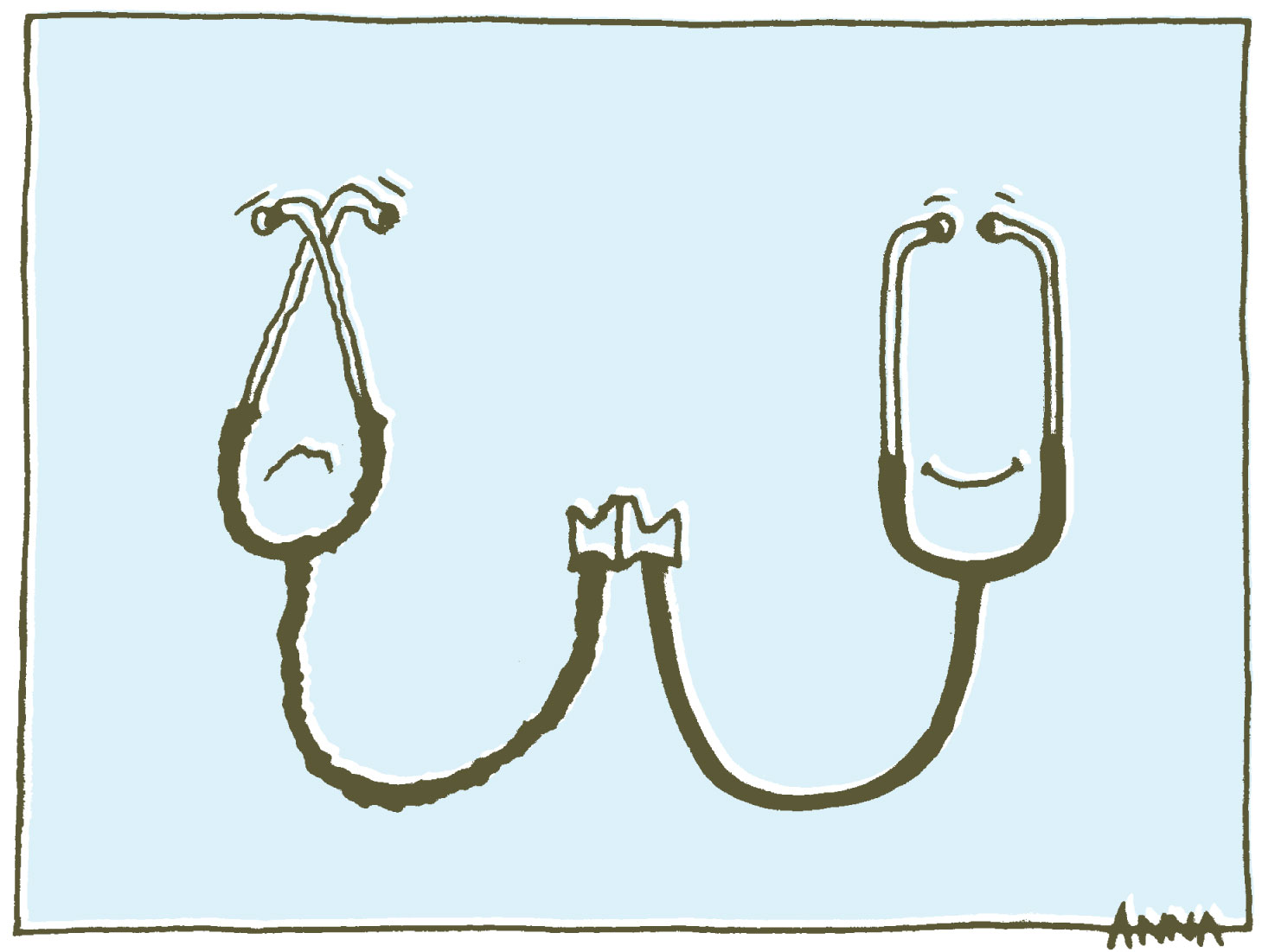
A pilot project offering support to doctors suffering from depression, burnout and other problems is to be extended across Switzerland.
Experts say that working conditions leave many doctors under pressure, with junior medics particularly affected. Often doctors are the last to seek medical help.
ReMed was set up by the Swiss Medical Association and has just finished a three-year pilot phase in cantons Thurgau and Neuchâtel. Having seen that the need was there – it dealt with around 80 cases during that time – the association announced this week that it was rolling the project out across the country.
“ReMed is a network to support physicians in crisis. Physicians sometimes run into problems with regard to their work, their family or partners, or just because they are normal people and sometimes get sick,” Michael Peltenburg, the project leader and himself a General Practitioner, told swissinfo.ch.
“We have physicians who have addiction problems, and who have depression, psychosis or burnout so we want to offer them a low threshold access possibility to talk about their problems, to look for help and to take care of themselves.”
Doctors can ring ReMed or contact via the web a 24-hour helpline run by a team of experts trained in crisis management. They will be contacted within 72 hours by a fellow doctor to discuss the problem – confidentially – and work out a plan of action.
An example might be a doctor with an alcohol problem or an older GP who can’t find a successor and is overloaded with work.
Almost half of the cases treated so far were doctors suffering burnout or depression, with a further third needing organisational support at work. Only 13 per cent sought help for an addiction. More women used the service, at 56 per cent.
Young doctors
“Burnout is quite frequent with the generation 50-60 years old but what we didn’t expect was that young doctors had difficulty in localising themselves within the healthcare system – they have the feeling they don’t fit it and are not at ease,” Peltenburg explained.
“Their boss usually doesn’t understand this and they are afraid to ruin their careers, so they don’t know who to talk to about these things.”
Peltenburg says young doctors often have to deal with a strict hospital hierarchy, the struggle to forge a career and the pressure to perform.
That many younger doctors are suffering does not surprise the Swiss Junior Doctors’ Association. A spokeswoman told the Tages-Anzeiger newspaper that some residents and interns still had to work very long hours in some hospitals, despite the law setting a 50-hour week.
Workplace bullying, including doctors having to work when ill, has also been reported.
“Doctors put up with things in hospitals which have long been deemed unacceptable anywhere else,” the spokeswoman was quoted as saying.
White coat image
Another part of the problem is that doctors themselves are also not always good at seeking help when in trouble. They are also seen as invincible.
“Society that sees them that way and they think they are seen that way and that they have to behave in that way,” Peltenburg said.“That’s part of the white coat image of physicians.”
This is why the hotline is also open to patients who are worried about their doctors, as well as family and colleagues.
ReMed is a first step. Peltenburg points to Norway and Spain where they have special doctor-only hospitals to avoid medics meeting their own patients when they are being treated, for example, in a psychiatric clinic.
He says this is a good response and that there are moves in Switzerland to make special programmes for doctors and to work with clinics. But this is at its very beginning.
In terms of ethical issues, such as a case of sexual abuse, Peltenburg says that the law for reporting such cases would apply.
There is an ReMed ethics group which can be consulted. But he stresses that the advice service is not a controlling organ and cannot hand out sanctions.
Its task and function is to offer support, he said. “We want to give physicians the same opportunities as other patients and if they are in trouble, we want to give them a second chance.”
ReMed provides support to physicians and helps them to find a way out of their crisis. There is a 24-hour hotline: 0800 0 73633 or contact can be made online (see links).
Within 72 hours of contacting ReMed, an experienced team of four counsellors – all medical doctors themselves – will be in touch to discuss the physician’s personal situation. All information remains confidential.
Typical cases might be lack of motivation, overwork, burnout, depression and addiction. Personal and work conflict problems can also be discussed.
A doctor might be offered mentoring or coaching to help deal with the issue or be referred on to specialists.
ReMed was launched by the Swiss Medical Association and has the support of various other doctors’ and patients’ organisations.
There were 30,166 practising doctors in 2009, according to Swiss Medical Association statistics, working in their own practices, hospitals or in other institutions (associations, insurances). This is the first time the number has risen to more than 30,000, which has to do with the rising number of women studying medicine.
The average age of a doctor in Switzerland is 48 years old. In the age groups 25-29 years old and 30-34 there are more women than men, but after 35 years old the situation reverses.
Nearly half of all assistant doctors in Switzerland received their medical training abroad, up from one-third five years ago, the association reported earlier this year. Most of the doctors in question come from Germany. Just 10 per cent of foreign assistant doctors come from another European Union country, while four per cent are non-EU nationals.

In compliance with the JTI standards
More: SWI swissinfo.ch certified by the Journalism Trust Initiative

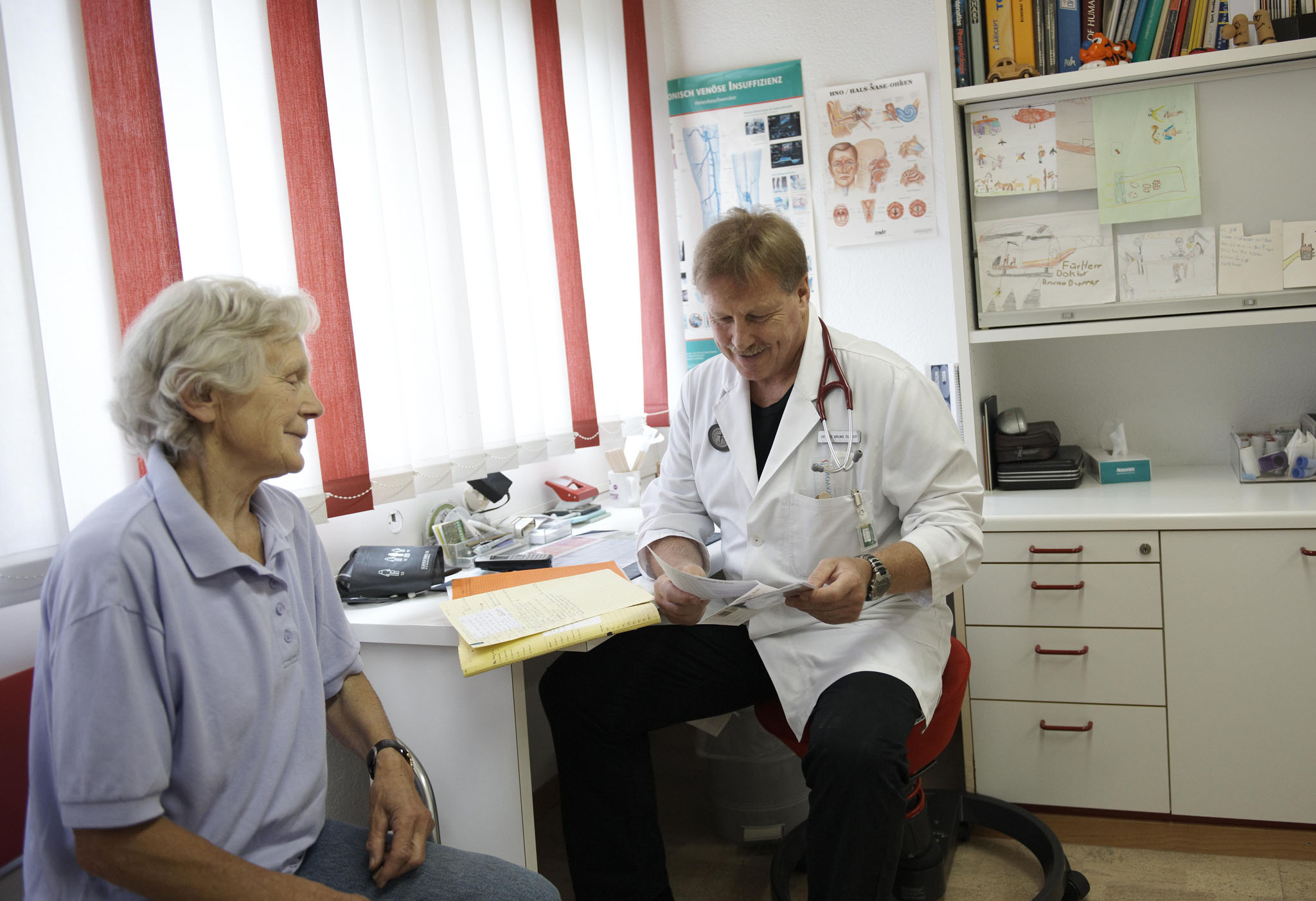
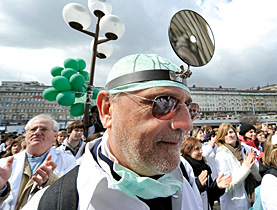
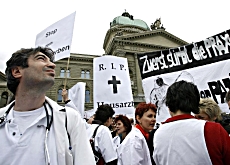
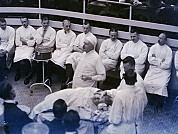
You can find an overview of ongoing debates with our journalists here. Please join us!
If you want to start a conversation about a topic raised in this article or want to report factual errors, email us at english@swissinfo.ch.